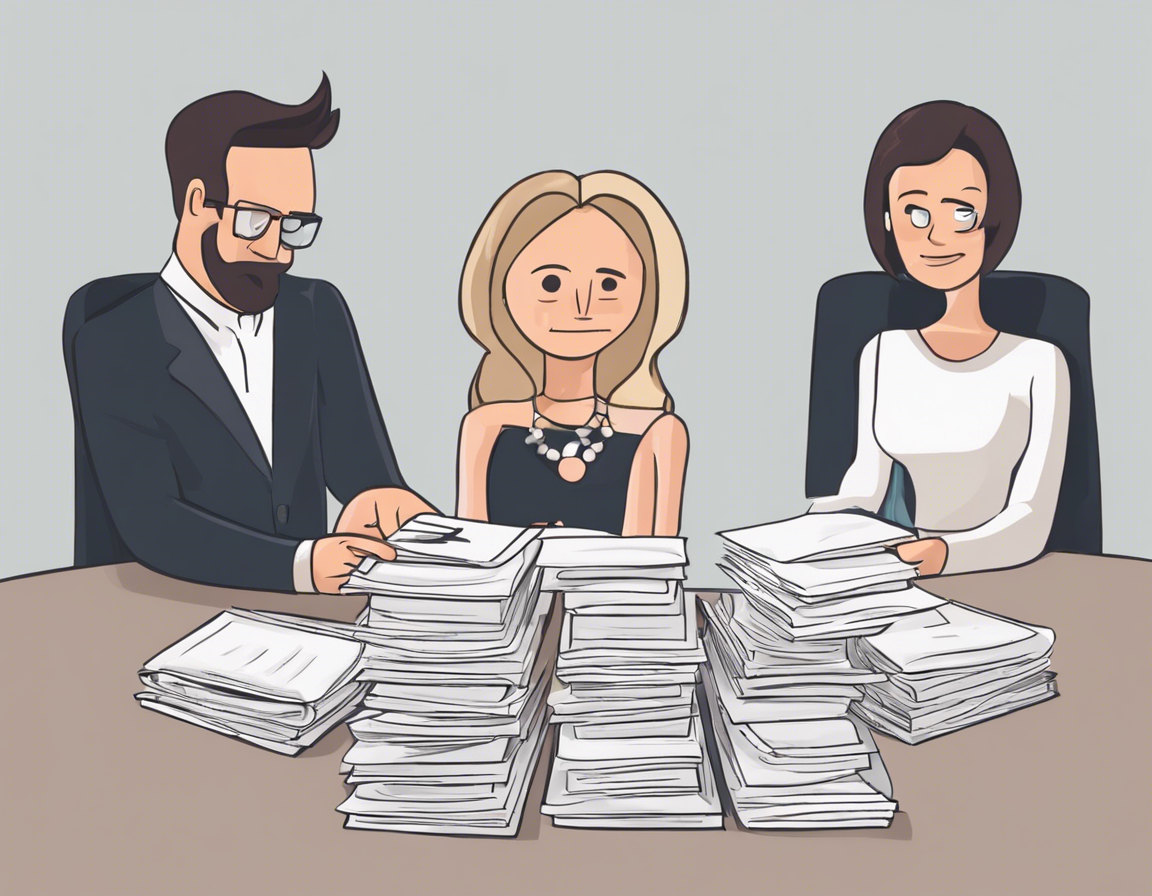Divorce is a complex and emotionally challenging process, and navigating through it can be overwhelming. However, knowing the procedure and the steps involved can help alleviate some of the stress. In this comprehensive guide, we will walk you through each step of the divorce filing process, from initial considerations to finalizing the divorce decree.
Step 1: Initial Considerations
Before filing for divorce, there are several initial considerations to keep in mind:
-
Grounds for Divorce: Familiarize yourself with the grounds for divorce in your state. Grounds may include adultery, cruelty, abandonment, or irreconcilable differences.
-
Residency Requirements: Make sure you meet the residency requirements for filing for divorce in your state. Typically, you or your spouse must have lived in the state for a certain period before filing.
-
Legal Representation: Consider whether you need to hire a divorce attorney to guide you through the process.
Step 2: Preparation and Filing of Petition
-
Prepare the Petition: The first step in filing for divorce is to prepare a divorce petition. This document outlines your requests for the court regarding issues such as child custody, alimony, and property division.
-
File the Petition: File the petition with the appropriate court in your jurisdiction. Pay the required filing fee unless you qualify for a fee waiver based on your financial circumstances.
Step 3: Serving the Spouse
-
Serve the Petition: After filing the petition, you must serve your spouse with a copy of the petition and a summons. This can be done by a process server or through certified mail, depending on the rules in your jurisdiction.
-
Proof of Service: File a proof of service with the court to confirm that your spouse was properly served.
Step 4: Response from the Spouse
- Response Timeframe: Your spouse has a specific timeframe, typically 30 days, to respond to the petition. They can either agree or contest the terms of the divorce.
Step 5: Discovery and Settlement Negotiations
-
Discovery: The discovery phase involves gathering information and documents related to assets, debts, and other relevant matters.
-
Negotiations: Settlement negotiations aim to reach agreements on issues such as child custody, support, and property division. Mediation or collaborative divorce processes can be helpful during this stage.
Step 6: Trial and Final Decree
-
Trial: If you and your spouse cannot reach a settlement, the case will go to trial where a judge will make decisions on unresolved issues.
-
Final Decree: Once all issues are resolved, the court will issue a final decree of divorce that outlines the terms of the divorce, including custody, support, and property division.
Frequently Asked Questions (FAQs)
- Do I need a lawyer to file for divorce?
-
While you’re not legally required to have a lawyer, it’s highly recommended, especially if your case involves complex issues such as child custody or significant assets.
-
How long does the divorce process take?
-
The time it takes to finalize a divorce varies depending on factors like the complexity of the case and whether it’s contested or uncontested. It can range from a few months to a year or more.
-
Can we reach a settlement without going to trial?
-
Yes, many divorces are resolved through out-of-court settlements such as mediation or collaborative law, avoiding the need for a trial.
-
What documents do I need to file for divorce?
-
You’ll typically need to file a petition for divorce, financial disclosures, and any other relevant forms required by your state court.
-
How is property divided in a divorce?
-
Property division laws vary by state, but typically, marital assets and debts are divided equitably between the spouses. This doesn’t always mean a 50/50 split.
-
Can I change my mind after filing for divorce?
-
In most cases, you can stop the divorce process by filing a request to dismiss the case. However, if the divorce is finalized, reversing it may be more challenging.
-
Do we have to go to court for a divorce?
-
While some divorces require a court appearance, many can be finalized without a court hearing if the spouses reach an agreement on all issues.
-
What if my spouse won’t sign the divorce papers?
-
If your spouse refuses to sign the papers, you may be able to proceed with a contested divorce where the court will make decisions on unresolved matters.
-
Can I get alimony in a divorce?
-
Whether you’re entitled to alimony depends on factors like the length of your marriage, each spouse’s income and earning capacity, and the standard of living during the marriage.
-
How does divorce affect child custody?
- Child custody is determined based on the best interests of the child, considering factors like each parent’s relationship with the child, living arrangements, and the child’s preferences.
Navigating the divorce process requires careful consideration, patience, and often professional guidance. By understanding the steps involved and seeking support when needed, you can work towards a resolution that meets your needs and enables you to move forward with confidence.
